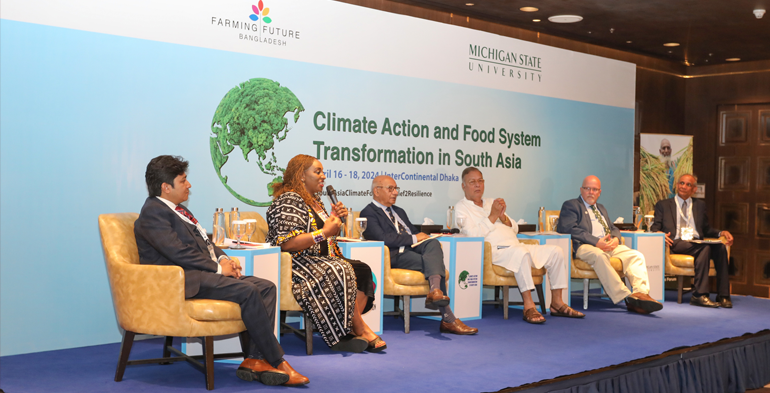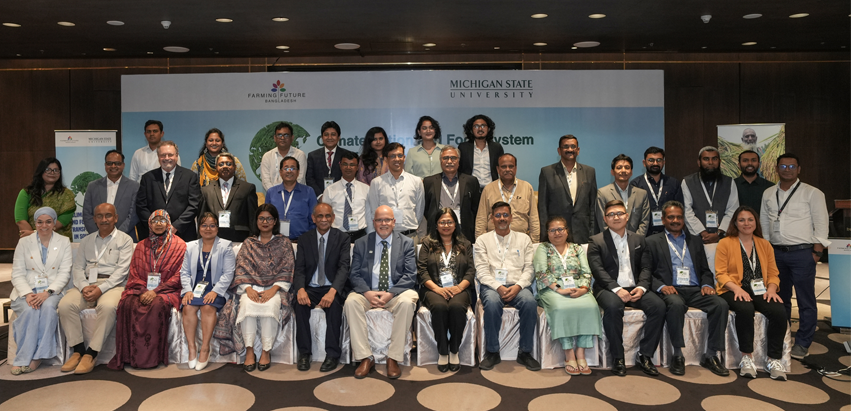
Agrilife24.com: Bangladesh: Farming Future Bangladesh and Michigan State University (MSU) proudly collaborated to host the South Asia Regional Forum on Climate Action and Food System Transformation on April 16, 2024, at the esteemed Hotel InterContinental Dhaka. The event looked over representations from six south Asian countries, including Bangladesh, India, Myanmar, Nepal, Pakistan, and Sri Lanka. During the daylong event, series of interactive panel discussions were held, exploring crucial issues impacting the region's food systems in the face of climate change.
Driven by the inseparable link of agriculture with climatic variables, impact of climate change on agriculture and food security has been at the forefront of the research. Reflecting on the significance of the forum, Dr. Md. Abdus Shahid, The Minister of Agriculture of Bangladesh remarked, “This forum has provided an invaluable opportunity for stakeholders to come together and discuss actionable strategies for addressing the pressing challenges facing our food systems in the context of climate change. It is imperative to host such productive discussions to learn from the global leaders as well as share our expertise in the sector.”
“Climate change is a challenge that transcends borders, but so too is the potential for collaboration. This forum presents a unique opportunity for us to join forces, leverage our diverse expertise, and create a future where South Asian food systems are resilient in a changing climate” spoke George Smith, Director of AgBioResearch, Senior Associate Dean for Research.
Talking about proper warning and evaluation systems in agriculture, Dr. Karim Maredia, director, college of agriculture and natural resources, added “Our aim is to deepen our understanding of the complex issues surrounding climate change and its impact on food systems in South Asia. We recognize the importance of developing indicators to assess the monitoring and evaluation of the impacts of our adaptation and mitigation strategies. This will enable us to measure the effectiveness of our efforts and make informed decisions moving forward.”

During a panel discussion on “Fostering Collaborative Research Programs for Adaptation and Mitigation Strategies”, Dr Sheila Ochugboju, Executive Director, Alliance for Science, highlighted “Amid this crisis, there lies abundant opportunities for transformation that can reshape our planet towards a brighter future. Climate change stands as one of the most pressing challenges of our time, affecting every aspect of agricultural practices, food security, and livelihoods. Together, with dedicated collaborative efforts among South Asian countries, we can create a climate resilient future.”
The discussions and insights generated during the event will serve as valuable inputs for shaping future policy frameworks and initiatives aimed at building climate resilience and transforming food systems in South Asia.
























